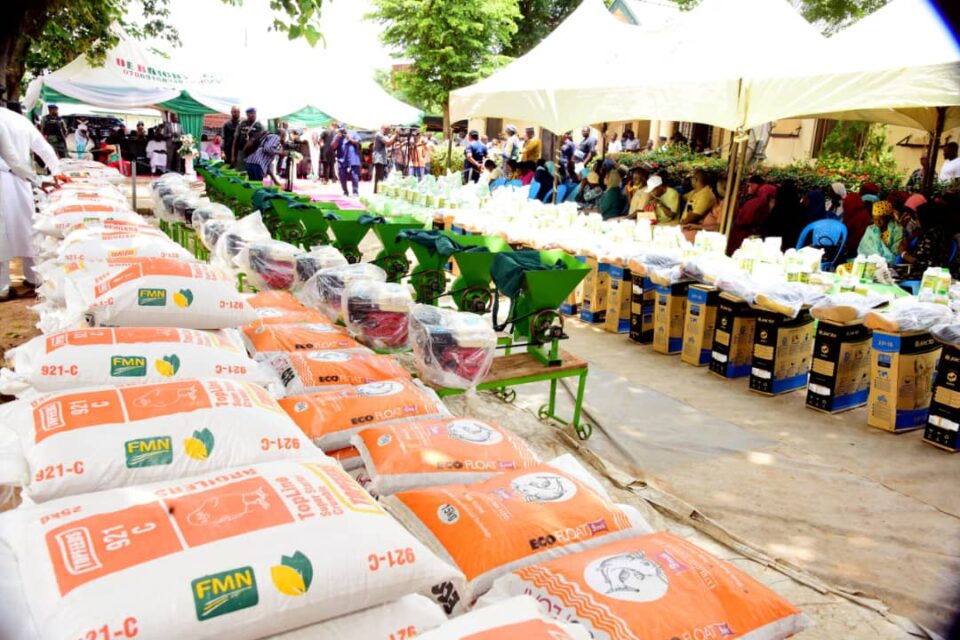By Daniel Tyokua
The Federal Capital Territory COVID 19 Action Recovery and Economic Stimulus ( FCT CARES) has rolled out the distribution of agricultural inputs to fourth batch of vulnerable farmers in the six area councils.
Speaking at the flag off in Gwagwalada on Thursday, the Minister of state for the FCT Dr Mariya Mahmoud said the initiative is targeted at supporting existing and newly emerging vulnerable and poor households, agricultural value chains, and Micro & Small Enterprises (MSEs) affected by the COVID 19 pandemic.
The minister said the program is to increase food security and safe functioning of food supply chain in the territory.
She said the flag off followed the successful completion of the disbursement to third batch of beneciaries of the program for 2023/2024 dry season production on December 7th, 2023, since the current FCT Administration came on board.
According to her, the disbursement shows the commitment of President Bola Tinubu towards ensuring sustainable food production through his administration’s Renewed Hope Agenda.
Mahmoud said within the first year of the current administration in the FCT, the FADAMA CARES program had disbursed grants to 3,150 beneficiaries under the third batch and will provide grants to an additional 6,020 new beneficiaries during the first year of the administration.
She explained that it is an indication of 216% increase compared to the disbursement figure of 4, 233 recorded by the program in about two years prior to the coming of the current administration.
Mahmoud said, “The FCT COVID 19 Action Recovery and Economic Stimulus program is a World Bank Budget support to the FCT for non-discretionary expenditure which is targeted at supporting existing and newly emerging vulnerable and poor households, Agricultural value chains, and Micro & Small Enterprises (MSEs) that have been negatively impacted by the COVID 19 pandemic.
“Within the first year of the current administration in the FCT, the FADAMA CARES program has disbursed grants to 3,150 beneficiaries under the third batch and and will now provide grants to an additional 6,020 new beneficiaries under the fourth batch. This will amount to a total of 9,170 beneficiaries during the first year of the administration”


